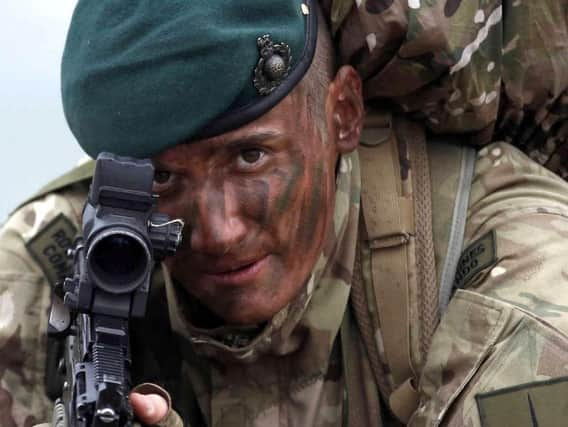Royal Marines to be cut by 200, first Sea Lord announces


Admiral Sir Philip Jones, the First Sea Lord, said the force would make the cuts as part of its efforts to "adapt to meet the challenges of a dangerous and uncertain world" as it introduces new ships, submarines and aircraft to the service.
It is not thought that any Marines will be made redundant, and instead the Navy will rely on natural wastage of staff for the overhaul.
Advertisement
Hide AdAdvertisement
Hide AdThe force is facing a staffing crisis before the completion of the first of two new aircraft carriers, HMS Queen Elizabeth, a Whitehall spending watchdog warned last month.
The National Audit Office said the shortage of engineers, intelligence personnel and warfighting specialists in the Navy and RAF air crew could delay the deployment of the carriers.
Admiral Jones said he knew how vital the marines were as "the UK's premier high readiness contingency force", but added: "I also know we must adapt to meet the challenges of a dangerous and uncertain world."
"The Government is investing in a new generation of ships, submarines and aircraft.
Advertisement
Hide AdAdvertisement
Hide Ad"As we introduce these capabilities into service, we must ensure we have the right mix of skills across each of the Navy's fighting arms to optimise how we use them, and the Commandant General and I have sought to find the right balance between sailors and marines in responding to this challenge."
He continued: "The Royal Marines remain bound into every part of the Royal Navy's future, from conducting sophisticated operations from the sea, at a variety of scales and against a range of threats, using our new aircraft carriers as a base, to leading the Service's development of information warfare.
"They will continue to be as vital to the defence of the realm in the years ahead as they have been for the past 350."